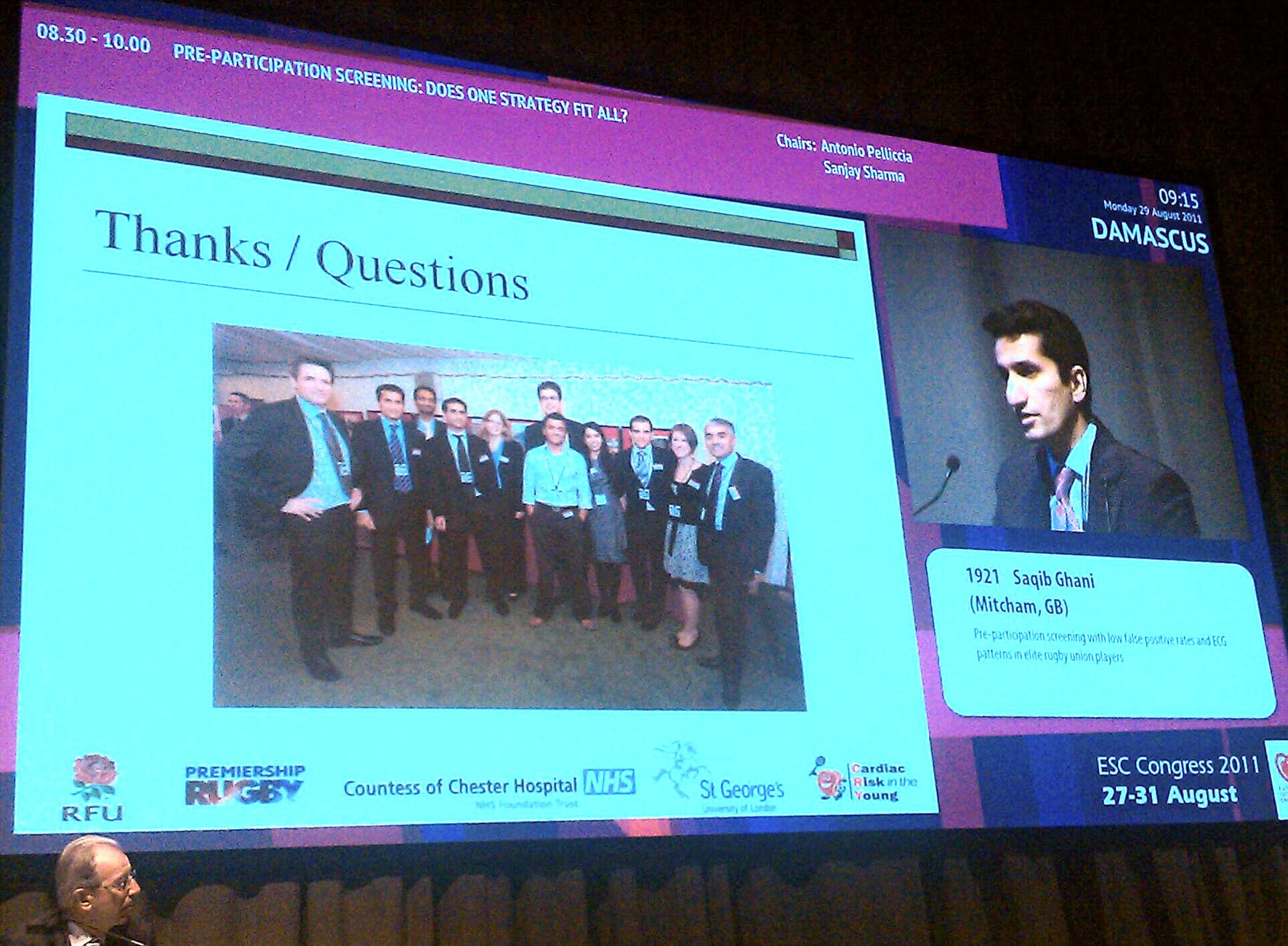Interview with Dr Saqib Ghani
CRY Research Fellow, Dr Saqib Ghani, presented his research ‘Pre-participation cardiovascular screening in elite rugby players: ECG patterns and low false positive rates’ at the prestigious European Society of Cardiology (ESC) Conference in Paris, August 2012.
- What is the ESC Congress?
The European Society of Cardiology (ESC) congress is recognised as the largest cardiology meeting in the world, attended by leading cardiologists from around the globe.
- What was your presentation about?
My presentation was titled “Pre-participation cardiovascular screening in elite rugby players: ECG patterns and low false positive rates”. The session was chaired by Professor Sanjay Sharma (UK) and Professor A Pellicia (Italy).
- What did the research show?
I presented my research from the CRY screening programme. CRY had screened over 600 elite Rugby Union players in 2010. I analysed the outcomes of cardiovascular screening in this cohort by adopting the European screening protocol using a health questionnaire, physical examination and 12-lead ECG. This was the first time that an entire sporting organisation endorsed pre-participation screening (PPS) for their athletes. In summary, the research showed that ECG features in rugby players are similar to those observed in other athletes as described in literature. The screening program resulted in a relatively small false positive result of 5.6%. A small proportion of players required further tests or follow-up, and none of the players were disqualified. This showed that when carried out in expert settings, screening with ECG is practical, feasible, and may be cost-effective.
- How was the research received?
The presentation was very well received and I had good feedback from the audience.
- How does this research impact on the work of the CRY clinics?
The research highlighted the active role CRY is playing in promoting cardiac screening in athletes in UK. With further research in the near future, CRY hopefully will be able to demonstrate how cardiac screening can be effectively carried out in the UK population.







